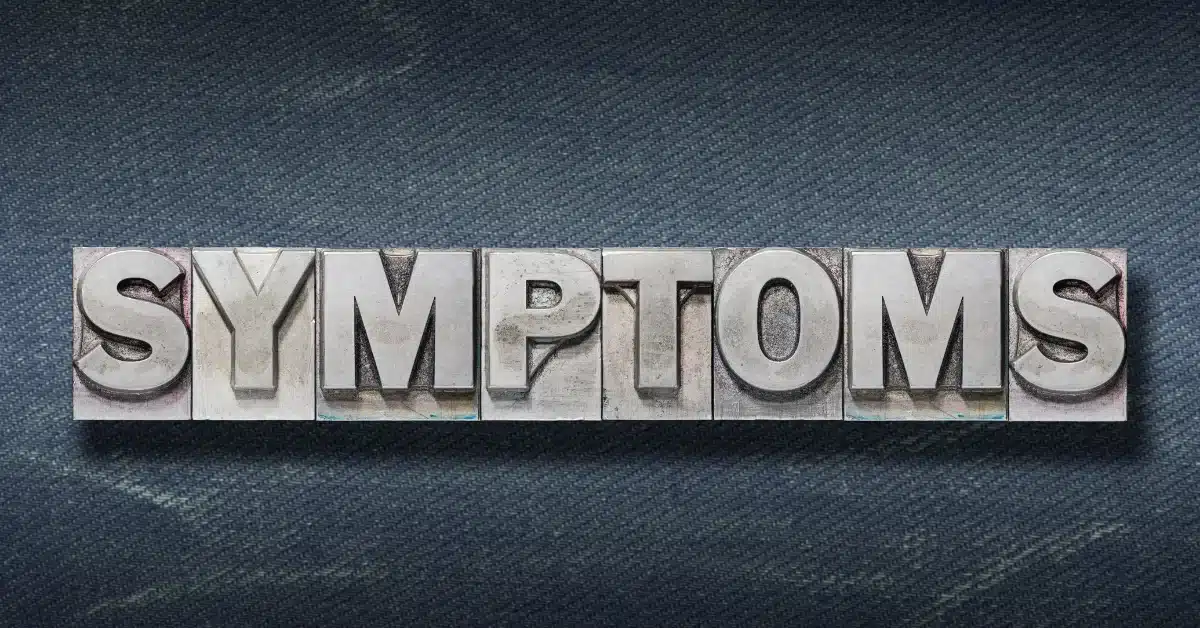Erectile Dysfunction (ED) is a Sexual Dysfunction.
It is the inability to achieve or maintain an erection for sexual intercourse.
This condition affects millions of men across the world.
However, there are some medicines like Viagra and Cialis which help treat ED
The different Erectile Dysfunction symptoms include:
- Difficulty in achieving an erection
- Reduced sexual desire or libido
- Premature Ejaculation or Delayed Ejaculation
- Reduced penile sensitivity
Occasional difficulty getting or maintaining an erection is normal. It does not indicate ED.
Yet, suppose these symptoms persist or interfere with your sexual life.
You must read this article to learn more about ED signs and symptoms.
Erectile Dysfunction Symptoms and Signs
 Source: Elnur
Source: ElnurAs mentioned, ED is characterized by the inability to achieve or maintain an erection during sexual activity.
While the condition is treatable, it’s essential to understand the symptoms of ED to seek timely medical intervention.
The symptoms are as follows:
Inability to achieve and maintain an erection
It is one of the common symptoms of Erectile Dysfunction.
Men may have trouble getting an erection firm enough for sexual intercourse.
This difficulty in achieving an erection can be caused due to many factors, which include:
Physical factors
Certain conditions, like Hypertension, Diabetes, heart disease, and Obesity, can lead to ED. Treatments like radiation therapy make it hard to achieve an erection.
Psychological factors
Stress, Anxiety, Depression, and relationship problems can contribute to difficulty achieving an erection.
Don’t let your Anxiety and Depression come in the way of your sexual life. Read out the article to know all about What Is Psychological ED?
Lifestyle factors
Lifestyle factors like smoking, alcoholism, and drug use can contribute to ED.
Read Alcohol Can Cause ED: The Impact of Alcohol on Erectile Dysfunction to know if alcoholism can be a prominent cause behind ED or not.
Reduced sexual desire or libido
Signs of ED include reduced sexual desire or libido. These include physical, psychological, and environmental factors.
Let’s discuss some of the common factors that might cause reduced libido:
Hormonal imbalances
Testosterone is the primary hormone responsible for sex drive in both men and women. Reduced levels of testosterone can lead to a decrease in libido.
Medications
Medications, such as antidepressants and antihypertension drugs, can lower libido.
Chronic illness
Chronic conditions like Diabetes, heart disease, and Arthritis can contribute to reduced libido.
Stress and Anxiety
Psychological factors such as stress and Anxiety can affect libido and sexual desire.
Relationship issues
Conflicts, communication problems, and other related issues can further lower sexual desire.
Age
As people age, their libido decreases due to hormonal and physical changes in the body.
Premature Ejaculation and Delayed Ejaculation
Premature Ejaculation (PE) and Delayed Ejaculation are common sexual disorders affecting men.
These conditions are also responsible for leading ED in men.
PE is a condition where a man ejaculates sooner than his partner would like.
Delayed Ejaculation causes distress and Anxiety and may impact their sexual relationship.
Causes of Delayed Ejaculation include psychological factors such as stress, Anxiety, and Depression.
Physical characteristics include nerve damage, hormonal imbalances, or side effects.
Talk to a doctor to determine the cause and recommend the appropriate treatment.
Treatment may involve medications or self-care practices like physical exercises.
Couples therapy may also help address any relationship issues contributing to the problem.
Reduced Penile Sensitivity
Reduced penile sensitivity is one of the symptoms of ED.
This is a condition that affects men’s sexual function.
The sensitivity of the penis plays a crucial role in sexual arousal and the ability to achieve and maintain an erection.
Therefore, any reduction in penile sensitivity can lead to difficulty achieving or maintaining an erection.
Several factors can reduce penile sensitivity, including medical conditions such as Diabetes, nerve damage, or circulatory problems.
Additionally, lifestyle factors such as excessive alcohol consumption or smoking can also lead to reduced penile sensitivity.
If you’re experiencing reduced penile sensitivity or other symptoms of ED, it’s essential to seek medical intervention.
Your healthcare provider can help determine the underlying cause of your symptoms and recommend appropriate treatment options.
Risk factors to ED
 Source: Henadzi
Source: HenadziSeveral risk factors increase the likelihood of developing ED, including age, obesity, sedentary lifestyle, etc.
Age
Men are more likely to acquire ED as they get older. A significant number of men over the age of 40 are thought to have ED.
Obesity
Obesity and being overweight raise the risk of conditions like Diabetes, and Hypertension, all of which are risk factors for ED.
Sedentary lifestyle
Reduced physical activity can lead to weight gain, poor circulation, and other health issues that increase the risk of developing ED.
Smoking
Tobacco can damage blood vessels and reduce blood flow to the penis, leading to ED.
Psychological factors
Anxiety, depression, and stress can all contribute to ED by affecting the body’s ability to achieve and maintain an erection.
Medications
As a side effect, some drugs, like blood pressure medicines and antidepressants, can cause ED.
Treatments for ED
There are several treatment options for ED, and the best option depends on the underlying cause and severity of the condition. Here are some common treatment options for ED:
- Medications: Erectile Dysfunction pills such as Sildenafil, Cialis, and Levitra are often prescribed to treat ED. These drugs blood flow to the penis, helping to achieve and maintain an erection.
- Penile injections: Alprostadil is a medication that can be injected directly into the penis to help achieve an erection. This treatment is typically used when oral medications are ineffective or not well-tolerated.
- Vacuum pumps: A device that can help draw blood into the penis, creating an erection. This treatment is often used in conjunction with medication or as an alternative to oral medications.
- Surgery: In some cases, surgery may be recommended to treat ED. This may involve implanting a penile prosthesis or performing vascular surgery to improve blood flow to the penis.
- Lifestyle changes: Making lifestyle changes such as losing weight, exercising regularly, quitting smoking, and reducing alcohol consumption can also help improve ED symptoms.
Talking to a doctor about underlying causes and getting treatment options is essential.
Depending on the cause, doctors might suggest treatments involving lifestyle changes.
Also, he might suggest medications like Viagra, therapy to treat ED.
Can nerve damage cause ED?
Various factors, including nerve damage, can cause Erectile Dysfunction (ED).
Nerve damage can occur due to medical conditions like Diabetes, multiple sclerosis, etc.
Erectile Dysfunction nerve damage symptoms may include:
- Difficulty in achieving erection: This is the most common symptom of ED. Men with nerve damage may have trouble achieving an erection.
- Reduced or absent nocturnal erections: Nocturnal erections occur at night. It shows healthy erectile function. Men with nerve damage may experience a reduction or absence of these erections.
- Delayed Ejaculation: Men with nerve damage may experience delayed Ejaculation. This makes it difficult to achieve orgasm during sexual intercourse.
- Reduced libido: Men with nerve damage may experience decreased sexual desire. This further contributes to ED.
Speak to your healthcare expert if you are experiencing these signs.
Last Word
Erectile Dysfunction can significantly impact a man’s self-esteem, relationships, and overall quality of life.
ED signs include the inability to achieve an erection, reduced sexual desire, etc.
By understanding the symptoms of Erectile Dysfunction, its causes, risk factors, and treatment options, men can take proactive steps to manage the condition and enjoy healthy sex life.
Additionally, risk factors for ED include smoking, age, medications, etc.
If you’re experiencing symptoms of ED, seek medical intervention to get the help you need.
Premature Ejaculation: When a person ejaculates earlier than his partner expects him to. This is called Premature Ejaculation.
Frequently Asked Questions
How do you know if you have Erectile Dysfunction?
A person might have Erectile Dysfunction (ED) if he finds it challenging to get and keep an erection.
Speak to your doctor. He might perform the necessary tests to know if you have Erectile Dysfunction.
What are the symptoms of Erectile Dysfunction?
The symptoms of ED include difficulty in getting and keeping an erection.
Other signs might include low sexual desire, Premature Ejaculation, Delayed Ejaculation, etc.
What are the signs and symptoms of Erectile Dysfunction?
The signs of ED include difficulty in achieving an erection, etc.
Other signs and symptoms might include low libido, Premature Ejaculation, etc.
How can ED be treated?
ED or impotence affects millions across the world.
It can be treated with prescription-based medicines like Viagra, Cialis, Levitra, etc.
What factors can contribute to impotence?
Physical factors like Obesity, Hypertension, and Cardiovascular conditions can contribute to impotence.
Additionally, psychological conditions like stress and Anxiety can lead to ED too.
When referencing outside resources, GoodrxMedicine always provides full citations. To learn more about the measures we use to maintain the quality of our content, please review our Content Information Policy.











